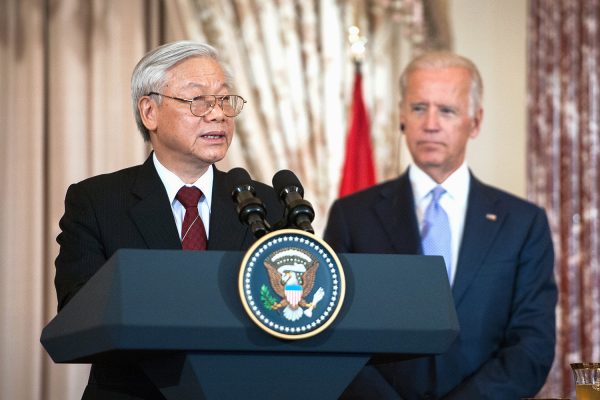
Joe Biden, who was declared the winner in America’s presidential election on Saturday, would return the United States to the Paris climate agreement and the World Health Organization; rejoin the Iran nuclear deal if Iran complies with its terms; extend the New START nuclear arms reduction treaty with Russia; and end America’s support for the Saudi-led war in Yemen.
Europe
Transatlantic relations will improve (how could they not?), but Politico Europe cautions that the ambitious agenda many European leaders were hoping for, “on everything from environmental policy to trade to defense,” may be of reach so long as outgoing president Donald Trump’s Republicans retain control of the Senate.
Without a majority in the upper chamber to ratify treaties, Biden — like his Democratic predecessor, Barack Obama — will have to rely on executive orders that can be overturned by the next president. That is how Trump was able to pull out of the Paris climate accord, the Iran nuclear deal and the Trans Pacific Partnership unilaterally.
A transatlantic free-trade agreement, which made some progress in the last years of Obama’s presidency, now seems farfetched. A bilateral trade deal with the UK is more likely, given Republican sympathies for Brexit. Although Biden, whose mother’s family is Irish, has made a point of warning that Britain’s exit agreement with the EU must protect the open border between Ireland and Northern Ireland.
China
Biden is likely to corral the world’s democracies into forming a unified front against China.
Trump claimed to be tough of China, but his go-it-alone foreign policy ignored the lessons of history and encouraged Sino-Russian rapprochement, raising the specter of authoritarianism across Eurasia.
His withdrawal from the Trans Pacific Partnership, which would have enforced copyrights and environmental protections, prohibited child and forced labor, and guaranteed union rights across the Americas and East Asia — and put pressure on China to do the same — betrayed a lack of vision. Trump’s primary motivation seemed to be overturning Obama’s legacy.
Luckily, the partnership has continued under Australian and Japanese leadership. Biden has not explicitly committed to rejoining, but there might be a chance if enough Senate Republicans rediscover their support for free and open trade, something they abandoned under Trump.
Trump never spoke up for the freedom of Hong Kong, nor for China’s persecuted Muslim minority, the Uighurs. Biden ought to.
Russia
Trump, wittingly or unwittingly, accepted Russia’s help in the 2016 election and gave Vladimir Putin everything he wanted. He divided the West, lifted sanctions on firms linked to Putin’s allies, pulled out of Syria (where Russia supports the brutal regime of Bashar Assad) and withdrew from the Intermediate-Range Nuclear Forces and Open Skies Treaties, which protected Russia’s neighbors.
Biden, who played a role as Obama’s vice president in galvanizing international support for sanctions after Russia annexed the Crimean Peninsula from Ukraine, knows Putin “fears a strong NATO” and may look to enhance cooperation with non-NATO states in the Russian periphery, like Serbia.
